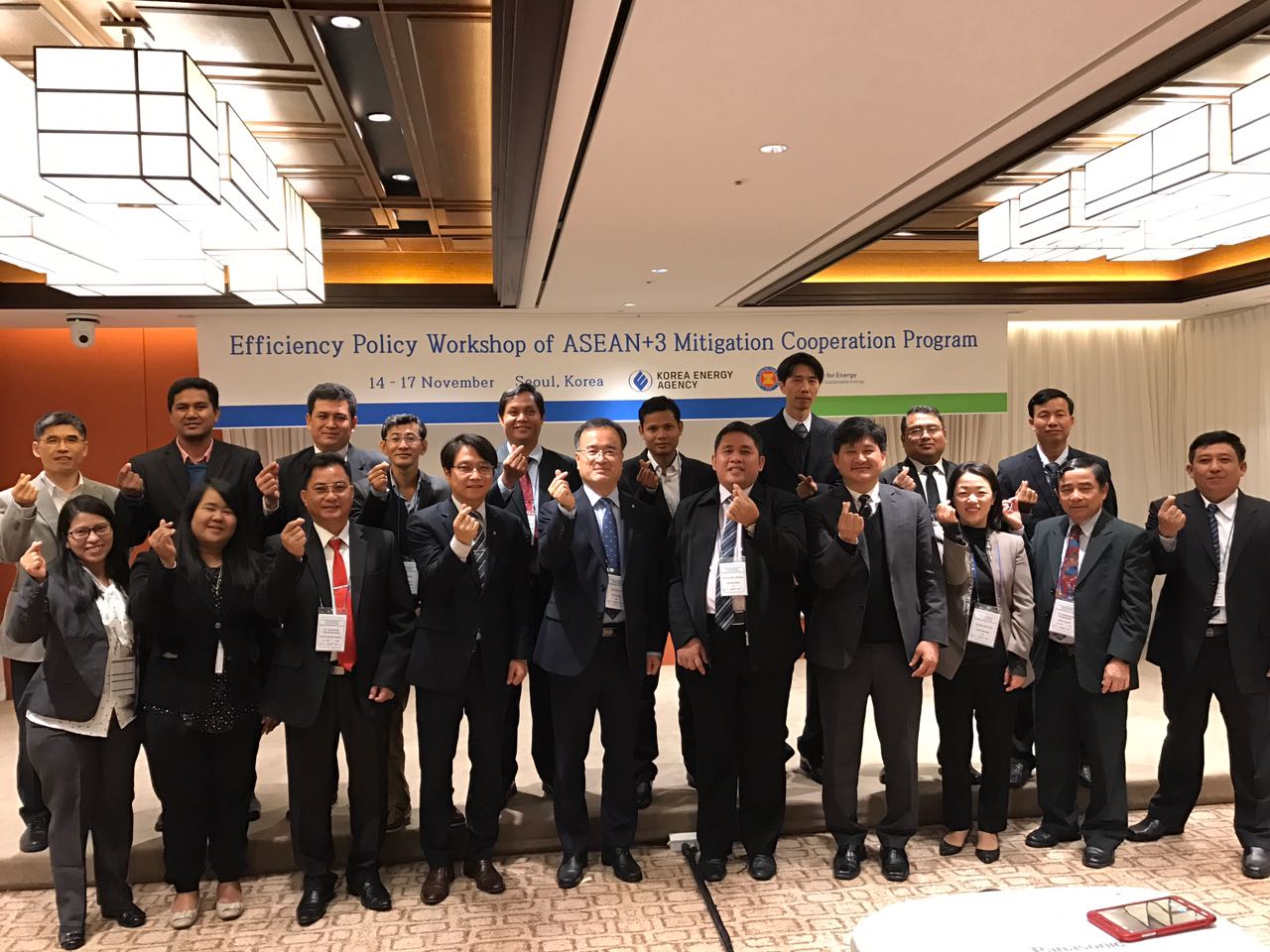Menu
Accelerating the adoption of energy-efficient products was the focus of the Efficiency Policy Workshop held by the ASEAN+3 (China, Japan, South Korea) Mitigation Cooperation Programme on 14-17 November 2017 in Seoul, South Korea. The Workshop was jointly organised by the ASEAN Centre for Energy (ACE) and Korea Energy Agency (KEA) with the support from the Ministry of Trade, Industry and Energy of Korea.
 The objective of the workshop was to highlight the important role of energy efficiency (EE) standard and labelling (S&L) system in various products such as air conditioners, refrigerators, and boilers. Sang-Hong Lee, Vice President of Korea Energy Agency, officiated the opening of the workshop. Government officials from Cambodia, Lao PDR and Myanmar (CLM) attended the workshop.
The objective of the workshop was to highlight the important role of energy efficiency (EE) standard and labelling (S&L) system in various products such as air conditioners, refrigerators, and boilers. Sang-Hong Lee, Vice President of Korea Energy Agency, officiated the opening of the workshop. Government officials from Cambodia, Lao PDR and Myanmar (CLM) attended the workshop.
Based on Korea’s longstanding experience in developing energy efficient technologies, the ASEAN+3 Mitigation Cooperation Programme provides knowledge sharing and best practices to the CLM countries in establishing policies like the minimum energy performance standards (MEPS). The MEPS is expected to prompt the permanent move to efficient products and ultimately reduce electricity demand and greenhouse gas emissions.
The representative from ACE shared the progress of the adoption of regional policy roadmap for efficient air conditioners to support the regional integration goals as asserted in the ASEAN Plan of Action for Energy Cooperation (APAEC) 2016-2020. The harmonisation of minimum energy performance standards is expected to drive market transformation in the region by promoting the use of more efficient products. Ultimately, it will support the greater intra-ASEAN trade for efficient products; reduced cost for performance testing, monitoring, and verification; energy saving; and reduced carbon emission.
In the discussion on how to boost domestic energy efficiency market, the International Energy Agency highlighted that some major measures have been more effective in improving the energy efficiency in some countries including the energy efficiency market. A variety of options to accelerate the adoption of the S&L system emerged from the discussion, among others; regulatory framework, operational guideline, product database testing laboratory, and strengthened institutional, human, technical, and financial capacities.
As part of the programme, KEA organised a visit to the Korea Refrigeration and Air Conditioning Assessment Center and Korea Energy Dream Building to enhance the participants’ understandings on EE testing procedure and operation including EE technology. Moving forward, the delegates expressed the need to strengthen the cooperation on the development of MEPS in combination with energy labels as an effective approach to encourage EE improvements in electrical appliances. (RJPS. Featured photo credit: ACE)(Photo caption: Dr. Sanjayan Velautham, ACE Executive Director and Mr. Gu Hongbin, CREEI Deputy Director General with the joint publication. Credit: EPC).
